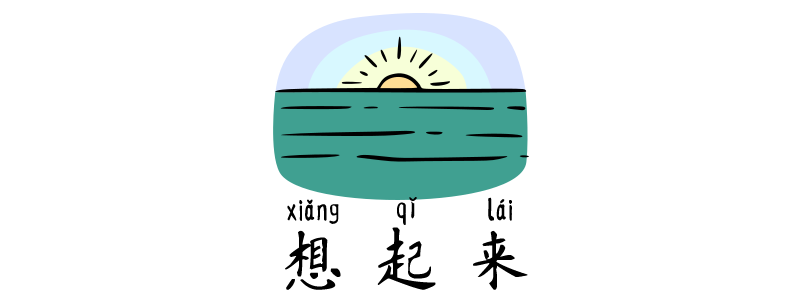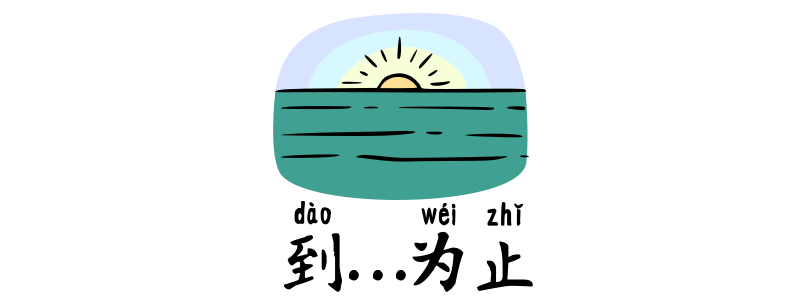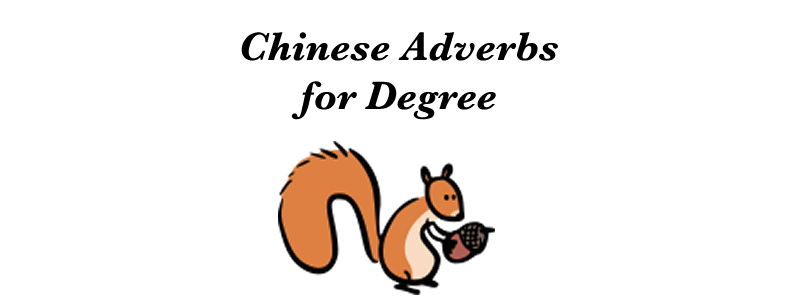Grammar Point除了 chúle is a commonly used conjunction in Chinese that means “besides” or “in addition to.” It is often used to introduce additional information. And it can take a noun phrase or a verb phrase as its object. Structure S + 除了⋯ (+ 以外) + 也 ⋯ Besides The subject can be placed either…
Author: tiffany
“Thus” in Chinese 2 – 因而 yīn‘ér
Grammar Point:因而 yīn’ér is a conjunctive adverb that means “thus,” “therefore,” or “as a result.” It indicates a causal relationship between two clauses, where the second clause is the logical consequence of the first. Structure Clause A + 因而 yīn’ér + Result of A 因而 yīn’ér is a formal, written-language equivalent of “thus” or “as a result,” used to…
No matter how – 怎么 zěnme + 都 dōu/也 yě + neg
Grammar Point:The Chinese grammar structure “怎麼么 zěnme + 都 dōu / 也 yě + negation” is used to express “no matter how…” or “no matter what…”, emphasizing that a certain action or situation remains unchanged despite different efforts or conditions. Structure 怎麼么 zěnme + V + 都 dōu / 也 yě + Negation This pattern is often used to express…
“Moreover” in Chinese 3 – 再加上 zài jiāshang
Grammar Point:(再)加上 (zài) jiāshàang is used to introduce additional information, often emphasizing an extra reason, condition, or factor that strengthens a previous statement. It is similar to “moreover,” “besides,” “in addition,” or “on top of that” in English. Structure Statement A,(再)加上 + Statement B + Result It is used to introduce an additional reason or factor that reinforces a statement….
Preposition 跟 gēn
Grammar Point:The Chinese word 跟 gēn has several functions depending on the context. As a preposition, it is often used to mean “with”, “and”, “from” or “to.” Structure With (Doing something together) When 跟 gēn is used to mean “with” in the sense of accompanying someone or being together, it is often paired with 一起 yìqǐ, which means “together.” If…
“According to” in Chinese 1 – 按照 ànzhào
Grammar Point:按照 ànzhào is a Chinese preposition often used to indicate following a certain method, guideline, or pattern. It conveys the idea of “following according to” or “in accordance with.” Structure 按照 ànzhào + a prescribed method, rule, or guideline You can use 按 àn on its own, to make the sentence more formal. 按照ànzhào你的nǐde意見yìjiàn,…
To Have Remembered – 想起來 xiǎngqǐlái
Grammar Point:The verb phrase 想起來来 xiǎngqǐlái is a resultative compound verb that expresses the idea of “recalling” or “remembering” something after some effort or realization. Structure S + 想起來来 xiǎngqǐlái + O 我wǒ想起來xiǎngqǐlái你nǐ的de名字míngzi了le我wǒ想起来xiǎngqǐlái你nǐ的de名字míngzi了leI just remembered your name. 他tā想xiǎng不bù起來qǐlái昨天zuótiān吃chī了le什麼shénme他tā想xiǎng不bù起来qǐlái昨天zuótiān吃chī了le什么shénmeHe can’t recall what he ate yesterday. 你nǐ想起來xiǎngqǐlái他tā住zhù在zài哪裡nǎlǐ了le嗎ma? 你nǐ想起来xiǎngqǐlái他tā住zhù在zài哪里nǎlǐ了le吗ma? Do you remember where he lives? 我wǒ想xiǎng不bù起來qǐlái他tā的de電話diànhuà號碼hàomǎ我wǒ想xiǎng不bù起来qǐlái他tā的de电话diànhuà号码hàomǎI can’t remember his phone…
“Until” in Chinese – 到 dào… 为止 wéizhǐ
Grammar Point:到 dào… 為为止 wéizhǐ is a common structure for expressing ‘until’ in Chinese. Unlike English, where ‘until’ is a single word, Chinese uses 到 dào as a starting marker and 為为止 wéizhǐ as an endpoint, framing the time, condition, or event. Structure 到 dào + Time/Event/Action + (為为止 wéizhǐ) 為为止 wéizhǐ is optional, but…
Chinese Adverbs for Degree 1
Grammar Point:過於过于 guòyú, 稍微 shāowéēi, and 尤其 yóuqí are three adverbs that express degree in Chinese. They help convey different levels of intensity, slight changes, and emphasis in a sentence. Structure 過於过于 guòyú / 稍微 shāowéēi + V or Adj 稍微 shāowéēi can be used with a verb with or without 一下 yíxià or 一點点 yìdiǎn. However, adding 一下 yíxià or 一點点 yìdiǎn makes the…
Reduplication of Verbs 2 – ABAB
Grammar Point:The ABAB form is a common way to soften the tone of an action, making it sound more casual, tentative, or informal. It is frequently used in spoken Chinese to suggest trying something out or doing it briefly. Structure Two-Syllable Verbs – ABAB 我們wǒmen先xiān討論tǎolùn討論tǎolùn, 再zài決定juédìng吧ba我们wǒmen先xiān讨论tǎolùn讨论tǎolùn, 再zài决定juédìng吧baLet’s discuss a little first, then decide! 這zhè次cì聚會jùhuì有yǒu很hěn多duō新xīn朋友péngyǒu, 大家dàjiā可以kěyǐ互相hùxiāng認識rènshì認識rènshì! 这zhè次cì聚会jùhuì有yǒu很hěn多duō新xīn朋友péngyou, 大家dàjiā可以kěyǐ互相hùxiāng认识rènshi认识rènshi! There are many new…









